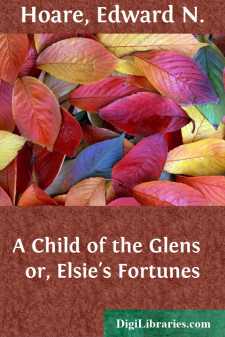Categories
- Antiques & Collectibles 13
- Architecture 36
- Art 48
- Bibles 22
- Biography & Autobiography 813
- Body, Mind & Spirit 142
- Business & Economics 28
- Children's Books 17
- Children's Fiction 14
- Computers 4
- Cooking 94
- Crafts & Hobbies 4
- Drama 346
- Education 46
- Family & Relationships 57
- Fiction 11829
- Games 19
- Gardening 17
- Health & Fitness 34
- History 1377
- House & Home 1
- Humor 147
- Juvenile Fiction 1873
- Juvenile Nonfiction 202
- Language Arts & Disciplines 88
- Law 16
- Literary Collections 686
- Literary Criticism 179
- Mathematics 13
- Medical 41
- Music 40
- Nature 179
- Non-Classifiable 1768
- Performing Arts 7
- Periodicals 1453
- Philosophy 64
- Photography 2
- Poetry 896
- Political Science 203
- Psychology 42
- Reference 154
- Religion 513
- Science 126
- Self-Help 84
- Social Science 81
- Sports & Recreation 34
- Study Aids 3
- Technology & Engineering 59
- Transportation 23
- Travel 463
- True Crime 29
Our website is made possible by displaying online advertisements to our visitors.
Please consider supporting us by disabling your ad blocker.
A Child of the Glens or, Elsie's Fortunes
by: Edward N. Hoare
Description:
Excerpt
CHAPTER I.
Doubtless some of our readers are acquainted with the noble "coast road" that skirts round the north-eastern corner of Ireland, extending, it might almost be said, from Belfast to Londonderry. The characteristic features of this noble esplanade (for such it is) are chiefly to be seen between the little town of Larne, where the railway ends, and Cushendall. Throughout this drive of forty miles you are never out of sight or sound of the sea. The almost level road is seen far ahead of the traveller, like a white boundary line between cliff and wave. You wonder at first if the road was made merely to gladden the tourist, for it does not seem likely that there could be much traffic other than that of pleasure-seekers thus along the margin of the sea. The configuration of this part of the County Antrim, however, explains the position of the road, and justifies the engineer who was so happily enabled to combine the utilitarian with the romantic. A series of deep cut gorges, locally known as "The Glens," intersect the country, running at right angles to the coast-line and thus forming a succession of gigantic ridges, over which it would be impossible to drive a road. For this reason it has been found necessary to wind round the mouths of these romantic valleys, which are guarded and shut off from each other by a number of formidable and noble headlands, foremost among which ranks the beautiful Garron Point. Thus a succession of surprises await the tourist. Having fairly made your way between the foot of the towering cliff and the inflowing tide, with no prospect in front but huge and grotesque-shaped rocks, which look bent on opposing all further advance, you suddenly find that you have doubled the point. A blue bay opens before you, shut in at its farther side by the next promontory, at the base of which you can distinctly trace the white streak of dusty road, that sweeps round the bay in a graceful semicircle. To your left—or while you are speaking, almost directly ahead—is the wide opening of one of the "Glens"—sweet, retired abodes of peace, sheltered and happy as they look out forever on the sea. The barren and rocky highlands, terminated by the wild bluffs that so courageously plunge themselves into the waves, become gradually softened and verdure-clad as they slope downward, while the narrow valley itself is studded with trees and pretty homesteads.
The people of "The Glens" are peculiar, primitive, and distinct. In these shut-in retreats the ancient Irish and Roman Catholic element largely prevails. When, in consequence of frequent rebellions, the original inhabitants were well-nigh exterminated, and their places taken by Scotch and English settlers, the natives found a refuge in the wilder and more remote parts of the country. Thus, here and there in Ulster—generally known as "Protestant Ulster"—we come upon little nooks and nests where for two centuries the primitive Irish race has survived. Naturally, living in the presence of their more pushing and prosperous Presbyterian neighbours, these last representatives of a conquered nationality are for the most part of a retiring and suspicious disposition....


